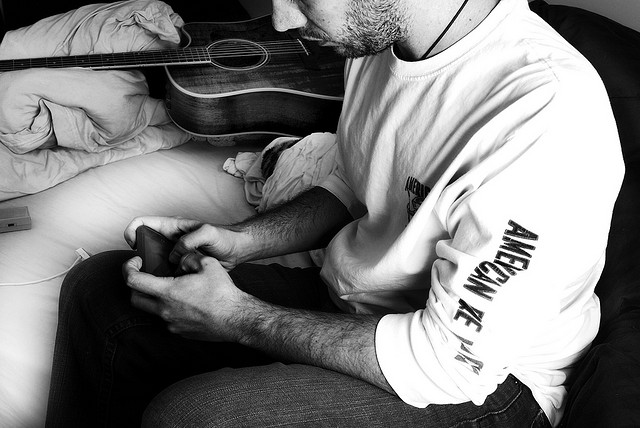We all know by now that the digital, information age is changing our lives, but is it for the better or worse?
Increasing evidence is showing that it is transforming us cerebrally, emotionally and physically. But what are the costs involved in this shift?
Recently, the Bank of England’s chief economist, Andy Haldane (1) expressed concern that Twitter’s rising popularity is a sign that our attention spans are getting alarmingly shorter. He warned that our brains are being reshaped to think fast rather than deep and that if this restless side of our brain continues to take prominence, it can be damaging to the economy.
Making rash decisions instead of considering the long-term effects or the growth of our personal capital is detrimental not only to our pockets but also to the wider economy, which relies on more stable liquid assets to keep itself afloat. But it is not only our national wealth that Haldane is worried about, fearing that the same short attention spans are stunting our educational, professional and creative capacity.
With so much technology around us, it comes as no surprise that our own parameters are being stifled. We are so distracted with a swarm of things to read, watch and respond to everyday that we’re finding it more and more difficult to take any one thing in. Kim Stolz, the author of Unfriending My Ex (2), which chronicles how our lives have become based on our obsessive relationship with technology, also claims that this technological overload has left us with the attention span of fruit flies.
Like Haldane, she underlines that social media outlets perpetuate our impulsive, uninhibited side which, in turn, increases our risk of making mistakes. Stolz backs this claim with an emerging body of research showing that when we stop having off-screen interaction, we begin to lose empathy and the ability to have genuine reactions to real problems and real things.
She cites a study (3) which found that college students are 40 percent less empathetic than they were 30 years ago, due to on-screen interactions that make it easier to say mean things and act before considering the effects. It is this empathy deficiency that she says is causing the increase and acceleration of breakups and fall outs between people who use social media outlets.
Peter Cavan, whose job includes digital strategy and social media at Pulse Energy, admits that “technology and social media can certainly make negativity more visible,” and it increases instant messages which give no time for second thoughts (4).
At the end of the day, the majority of us are part of this big communication swap, so perhaps we should consider how and what we put out there. Are we adding to the mass of negativity or that of positivity?
By thinking deep instead of reacting fast we might consider the consequences of what we say and do rather than treating aspects of our life like pieces on a virtual game board. Just as we filter our spam, we can learn to control our own communication.
Over the last few years I’ve been on the receiving end of online interaction, where people have made impulsive decisions that involved me. These included grand plans to which I took active steps towards realising in my “off-screen” life. But on various occasions, it was all cut short with a curt one-liner or even no communication at all.
I’ve unwillingly lost a few dear relationships or become alienated from others and it’s been sad for me because there was no real explanation or closure, and I think social media outlets have had a large part to play in this.
With our long lists of virtual friends, deleting one or blanking another has no real direct consequence on us because without any face-to-face contact, it can be easy to forget there’s a person on the other end. If we are not careful we can lose sight of the bigger picture beyond the screen, and become desensitized to our environment and the people around us.
It’s becoming clearer that we are getting more and more out of practice with essential skills like creativity, the art of real conversation and regular self-reflection. These are some of our greatest assets that we risk losing if we constantly filter our life through technology.
The way I see it is that what we do in our online world reflects who we are in our offline one. We can make reckless decisions behind a screen or reflect and act with integrity and a human touch.
We should sit down and consider what type of person we would like to be and whether our online self is actually reflecting that.
If these two selves do not match there might be a bit of work for us to do still.
Sources:
(1) TheGuardian.com
(2) KimStolz.com
(3) Time.com
(4) Vancouver Sun
Relephant:
10 Steps to Avoid the Social Media Dark Side.
Author: Khara Burgess
Editor: Catherine Monkman
Photo: B. Rosen/Flickr







Read 2 comments and reply